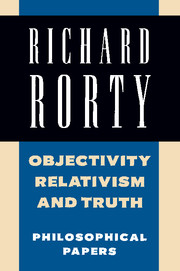Book contents
Non-reductive physicalism
Published online by Cambridge University Press: 05 June 2012
Summary
One of the obstacles which hinders communication between German and American philosophy is that, within German philosophy, materialism and physicalism are associated with reductionism and with scientism. Conversely, within American philosophy, German philosophy is associated with contempt for natural science. But, as I see it, American philosophy has now reached a position which, though still plausibly described as “materialist” or “physicalist”, is no longer in any way scientistic. Contemporary American philosophers such as Putnam and Davidson represent a strain of philosophical thought which makes philosophy no more the ally of science than of any other area of culture, and which frees analytic philosophy from the familiar charge of “reductionism”.
In this paper, I shall try to show how Davidson's views, in particular, help us work out a picture of the relations between the human self and the world which, though “naturalized” through and through, excludes nothing. Davidson's work seems to me the culmination of a line of thought in American philosophy which aims at being naturalistic without being reductionist. Just as Dewey prided himself equally on his naturalism and on his aestheticism – his view of culture as the transformation of experience into art – so Davidsonian philosophy of mind and language enables us to treat both physics and poetry evenhandedly.
Information
- Type
- Chapter
- Information
- Objectivity, Relativism, and TruthPhilosophical Papers, pp. 113 - 125Publisher: Cambridge University PressPrint publication year: 1990
Accessibility standard: Unknown
Why this information is here
This section outlines the accessibility features of this content - including support for screen readers, full keyboard navigation and high-contrast display options. This may not be relevant for you.Accessibility Information
- 6
- Cited by
